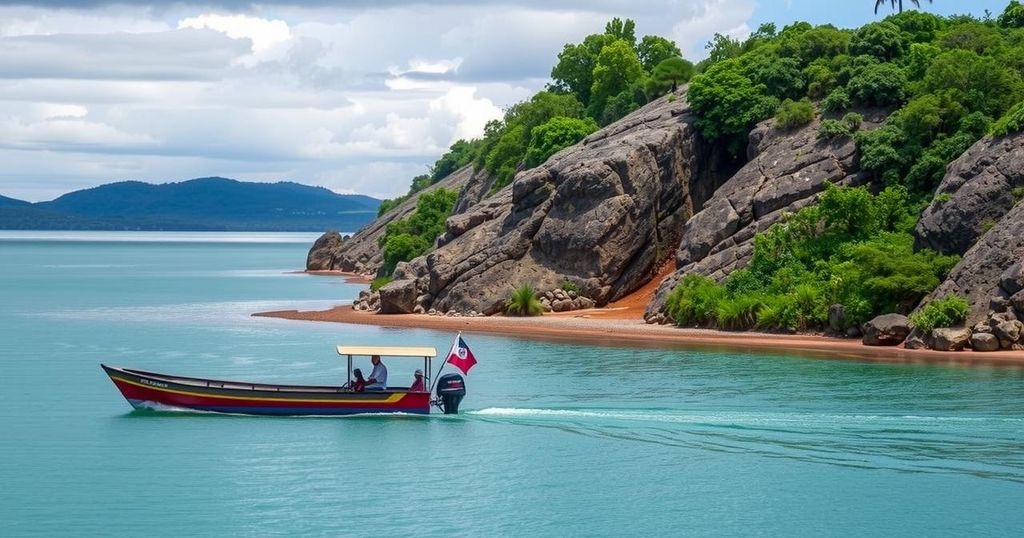The dispute between Malawi and Tanzania over Lake Malawi continues due to conflicting interpretations of historical treaties and international law. Malawi claims sovereignty based on the Anglo-German Treaty of 1890, while Tanzania advocates for a median line boundary. The dispute impacts regional resources and has not yet been resolved despite diplomatic efforts.
The ongoing territorial dispute between Malawi and Tanzania regarding the ownership of Lake Malawi, also referred to as Lake Nyasa in Tanzania, remains a significant point of contention between the two nations. The discord arises from differing interpretations of historical treaties and international law concerning the lake’s sovereignty. Malawi claims dominion over the entire expanse of the lake up to the Tanzanian shoreline based on the Anglo-German Treaty of 1890, which Malawi argues explicitly delineates the boundary at the lake’s eastern shoreline.
In support of its position, Malawi also indicates historical treaties with Portuguese colonial entities, asserting that sovereignty over certain islands on the Mozambican side was ceded to Nyasaland in contrast for the southeastern portion of the lake. Conversely, Tanzania contests this assertion, advocating for the median line principle as the legitimate delineation of boundaries in shared water bodies. Tanzania posits that such a boundary would bisect Lake Malawi, similar to the arrangements it has with Mozambique.
This unresolved dispute holds considerable implications for regional stability and resource management. Lake Malawi serves as a vital source of water, sustenance, and economic opportunity for millions of people. Furthermore, there are suggestions of considerable natural resource deposits, including potential oil and gas reserves, which further complicates the situation as both countries seek access to these benefits.
Efforts for resolution have been made through diplomatic channels, including attempts by the African Union and various international organizations. However, dialogue has yet to yield a solution, as Malawi remains steadfast in its interpretation of the 1890 treaty while Tanzania advocates for a more contemporary and fair interpretation of international boundary law. The complexities of aligning historical treaties with modern principles of international governance continue to challenge both nations.
The territorial dispute over Lake Malawi stems from colonial agreements and differing national interpretations of those agreements. The Anglo-German Treaty of 1890, central to Malawi’s claims, established boundaries in what was then the British Protectorate of Nyasaland. Conversely, Tanzania relies on the median line principle, a modern customary practice in international law, to argue for an equitable sharing of the lake’s resources. The lake, rich in biodiversity and potential hydrocarbons, holds significant economic importance for both countries, impacting millions of lives, thereby rendering the dispute acute and urgent.
The lake sovereignty dispute between Malawi and Tanzania underscores the complexities of historical versus modern interpretations of international law. With both nations holding firm to differing viewpoints, and with substantial economic implications surrounding Lake Malawi’s resources, the stakes are high. The ongoing efforts at diplomatic engagement illustrate a broader challenge in resolving bilateral disputes, highlighting the importance of both historical context and contemporary legal frameworks.
Original Source: malawi24.com






